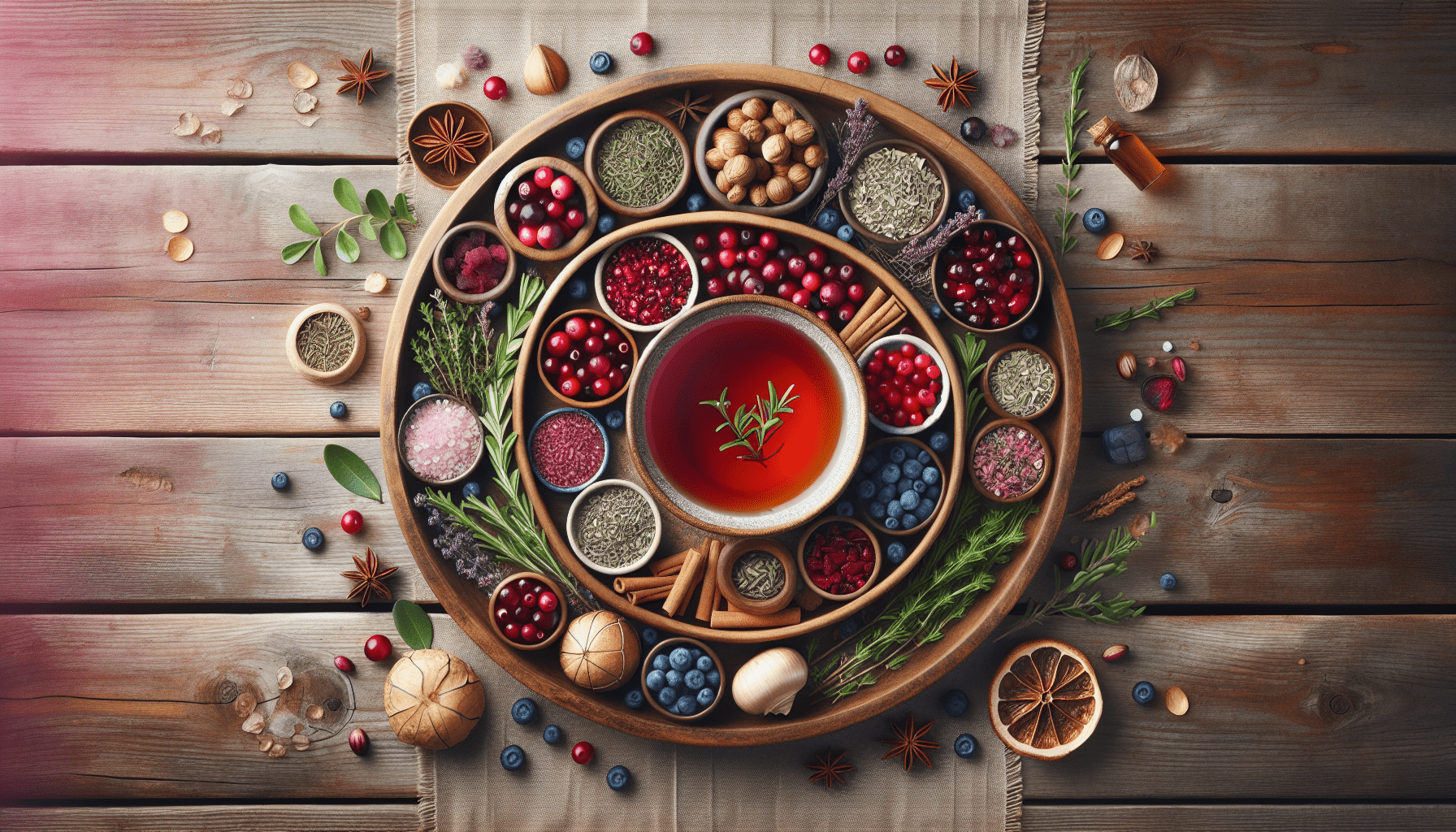Have you ever wondered about the natural ways to regain balance and control over your bladder? This concern becomes more prominent as you get older. It’s a common issue many individuals face, but it’s not something you have to live with permanently. With the right approach and some lifestyle tweaks, you can restore normal bladder control and improve your quality of life.
Finding Balance: Restoring Bladder Control Naturally
Understanding the Importance of Bladder Health
Your bladder health significantly impacts your daily life. The bladder stores urine produced by the kidneys until it’s ready to be excreted, a process that generally operates smoothly. As you age, your bladder might not function as efficiently, leading to incontinence and overactive bladder (OAB). Understanding the underlying causes can help in managing these conditions better.
Aging and Bladder Control
As you grow older, your body undergoes various changes. For the bladder, this means a gradual loss of elastic tissue, making the bladder less stretchy and reducing its capacity. The pelvic floor muscles, which support bladder function, can also weaken with age. These changes can result in increased frequency and urgency of urination, and sometimes, accidental leakage.
The Role of Diet and Hydration
Your diet plays a crucial role in maintaining bladder health. Certain foods and beverages can irritate the bladder, leading to incontinence or OAB symptoms. It’s essential to identify and avoid these triggers.
Bladder-Irritating Foods and Drinks:
| Type | Examples |
|---|---|
| Caffeine | Coffee, tea, energy drinks |
| Spicy Foods | Hot peppers, salsa |
| Acidic Fruits | Oranges, grapefruits, tomatoes |
| Artificial Sweeteners | Found in diet sodas, sugar-free products |
| Alcohol | Beer, wine, spirits |
Avoiding or reducing the intake of these items can make a significant difference. Instead, focus on a balanced diet rich in fiber, as constipation can exacerbate bladder control issues.

The Power of Hydration
Contrary to what you might think, reducing water intake is not the solution to bladder problems. Drinking enough water is key. Proper hydration helps in flushing out toxins and maintaining bladder health. Aim for about 6-8 glasses of water a day, but adjust according to your body’s needs and doctor’s advice.
Bladder Training Techniques
Bladder training involves techniques to increase the time between urination and the amount of urine your bladder can hold. This can help in reducing the symptoms of an overactive bladder.
Steps to Bladder Training:
Keeping a Bladder Diary: Track your urination times, fluid intake, and urgency levels. This helps identify patterns and set realistic goals.
Timed Voiding: Set a fixed schedule for urination. Gradually increase the interval between bathroom visits. This trains your bladder to hold more urine for longer periods.
Delayed Urination: When you feel the urge to urinate, try to delay going to the bathroom by a few minutes. Over time, increase this delay.
Strengthening Pelvic Floor Muscles
Your pelvic floor muscles play a critical role in controlling urination. Strengthening these muscles can significantly improve bladder control.
Kegel Exercises:
Kegel exercises are designed to strengthen the pelvic floor muscles. Regular practice can alleviate incontinence and improve bladder control.
Identify the Muscles: When you’re urinating, try to stop the flow midstream. The muscles you use are your pelvic floor muscles.
Practice Makes Perfect: Tighten these muscles and hold for about five seconds, then relax for five seconds. Aim to repeat this ten times, three times a day.
Consistency is Key: Incorporate Kegel exercises into your daily routine for the best results.

Natural Supplements for Bladder Control
Several natural supplements can support bladder health and control. While they’re not a replacement for medical treatments, they can complement your efforts to manage bladder issues.
Beneficial Supplements:
| Supplement | Benefits |
|---|---|
| Pumpkin Seed Extract | May improve urinary function and reduce symptoms of overactive bladder |
| Saw Palmetto | Known for promoting prostate health which can indirectly support bladder function in men |
| Magnesium | Helps in muscle relaxation and can reduce bladder muscle spasms |
| Vitamin D | Deficiency is linked to weaker pelvic floor muscles; supplementation may help |
Consult your healthcare provider before starting any new supplements to ensure they’re safe for your particular health situation.
Managing Stress and Bladder Control
Stress can exacerbate bladder issues. Finding ways to manage stress effectively can significantly improve your bladder health. Techniques such as mindfulness meditation, yoga, and deep breathing exercises can contribute to overall well-being and better bladder control.
Regular Physical Activity
Staying active is beneficial for your overall health, including your bladder. Regular exercise can strengthen your pelvic and abdominal muscles, supporting better bladder control.
Types of Exercises:
| Exercise | Benefits |
|---|---|
| Walking | Low-impact, improves general health and supports bladder function |
| Squats | Strengthens pelvic floor and abdominal muscles |
| Yoga | Enhances flexibility, balance, and muscle strength, including the pelvic area |
| Pilates | Focuses on core strength, which supports bladder control |
Incorporate these exercises into your daily routine to promote bladder health.
Herbal Remedies for Bladder Health
Several herbs are traditionally used to support bladder health. Incorporating these into your wellness routine can provide additional support alongside other practices.
Helpful Herbs:
| Herb | Benefit |
|---|---|
| Uva Ursi | Has anti-inflammatory properties and helps reduce bladder inflammation |
| Corn Silk | Acts as a mild diuretic and soothes irritation in the urinary tract |
| Horsetail | Supports kidney and bladder function, can help reduce urination frequency |
| Cleavers | Traditionally used to support lymphatic and urinary system health |
Always consult a healthcare professional before incorporating new herbs into your regimen.
Lifestyle Adjustments for Better Bladder Control
Making specific lifestyle changes can play a significant role in managing bladder control issues. Simple adjustments can lead to substantial improvements.
Changes to Consider:
| Adjustment | Benefit |
|---|---|
| Quit Smoking | Reduces bladder irritation and the risk of bladder cancer |
| Weight Management | Decreases pressure on the bladder and pelvic muscles |
| Limit Evening Fluid Intake | Reduces nighttime urination |
| Regular Bathroom Habits | Encourages regular voiding and reduces urgency |
These adjustments can complement other strategies to improve bladder control.
Sleep and Bladder Health
Your sleep quality directly impacts bladder function. Disrupted sleep can lead to nocturia, a condition where you wake up frequently at night to urinate. Ensuring good sleep hygiene practices can support bladder health.
Sleep Hygiene Tips:
Regular Sleep Schedule: Go to bed and wake up at the same time every day.
Comfortable Sleep Environment: Make your bedroom conducive to sleep by keeping it dark, quiet, and cool.
Limit Stimulants: Avoid caffeine and alcohol close to bedtime.
Relaxation Routine: Develop a pre-sleep routine that helps you wind down, such as reading or taking a warm bath.
Seeking Professional Help
If you’ve tried natural remedies and lifestyle adjustments without significant improvement, it might be time to seek professional help. A healthcare provider can offer additional treatments and interventions to manage your bladder health effectively.
Professional Treatments:
| Treatment | Description |
|---|---|
| Medications | Prescribed to manage symptoms of OAB and incontinence |
| Bladder Injections | Botulinum toxin injections to reduce bladder muscle activity |
| Nerve Stimulation | Devices implanted to stimulate the nerves controlling the bladder |
| Surgery | For severe cases, procedures to support or enhance bladder function |
Consult with a healthcare professional for a tailored approach to your bladder health.
Taking Control of Your Bladder Health
Bladder control issues can be challenging, but you don’t have to face them alone. By understanding the contributing factors and implementing these natural strategies, you can regain control and improve your day-to-day life. Remember, consistency is key. Don’t be discouraged by occasional setbacks; with time and perseverance, you can find the balance and comfort you seek.
Restoring bladder control naturally is a journey that involves multiple facets of health and lifestyle. Stay patient and be proactive in seeking solutions that work best for you.
Conclusion
Regaining bladder control naturally requires a comprehensive approach involving diet, exercise, stress management, and possibly supplements. By making informed choices and taking proactive steps, you can significantly improve your bladder health and overall quality of life. Stay positive, and take one step at a time—you’ve got this!





